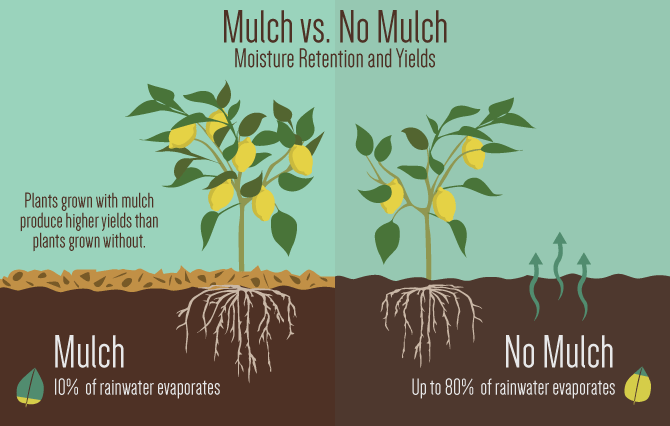What Are The Benefits Of Using Mulch In The Garden?
Listen up y'all, I want to talk to you about one of the most important things you can do for your garden: mulching. Now, I know some of y'all might be thinking "What the heck is mulching and why do I need it?" Don't worry, I'm here to break it down for you.

What is Mulching?
Simply put, mulching is a method of protecting and nourishing your garden by adding a layer of organic material on top of the soil. This can include things like leaves, grass clippings, straw, or even wood chips.
Why is Mulching Important?
There are a ton of benefits to mulching, y'all. Here are just a few:
- Retains Moisture: Mulch helps to trap moisture in the soil, which means you won't have to water your garden as often. This is especially important during those hot summer months when water can evaporate quickly.
- Suppresses Weeds: By adding a layer of mulch, you can help to prevent weeds from popping up in your garden. The mulch acts as a barrier, blocking out sunlight and preventing weed seeds from germinating.
- Controls Temperature: Mulching can help to regulate the temperature of your soil. In the winter, it can keep the soil warmer, while in the summer it can keep it cooler.
- Provides Nutrients: As the mulch breaks down, it adds nutrients back into the soil. This can help to improve soil health and fertility, which in turn can lead to healthier plants.
How to Mulch
So now that you know all about the benefits of mulching, let's talk about how to do it. Here are the basic steps:
- Clean and weed your garden
- Add a layer of compost or fertilizer to the soil
- Add a layer of mulch on top, making sure it's at least 2-3 inches deep
- Water the mulch and soil thoroughly
Now, when it comes to choosing the right type of mulch, there are a few things to consider:
- Organic vs. Inorganic: Organic mulches, like leaves and wood chips, will break down over time and add nutrients to your soil. Inorganic mulches, like stones and black plastic, won't break down and won't add nutrients, but they can help to suppress weeds.
- Color: Mulches come in a variety of colors, from natural brown to bright red. Some folks choose a color that complements their garden, while others opt for a more understated look.
- Availability: Depending on where you live, certain types of mulch may be more readily available than others. Do some research to find out what options are available in your area.
When to Mulch
The best time to mulch is in the spring, after the ground has thawed and the soil temperature has started to warm up. This will help to trap in moisture and keep the soil at a steady temperature as the weather heats up. You can also mulch in the fall, which will help to protect delicate plants from the cold winter weather.
Final Thoughts
Mulching is one of the simplest and most effective ways to protect and nourish your garden. By adding a layer of organic material to your soil, you can retain moisture, suppress weeds, regulate temperature, and provide nutrients back to the soil. So what are y'all waiting for? Grab some mulch and get to work!



